Igbo News
The ‘Water Resources Bill’ Pushed By The Fulani, And The Existential Threats It Poses To Ndi Igbo
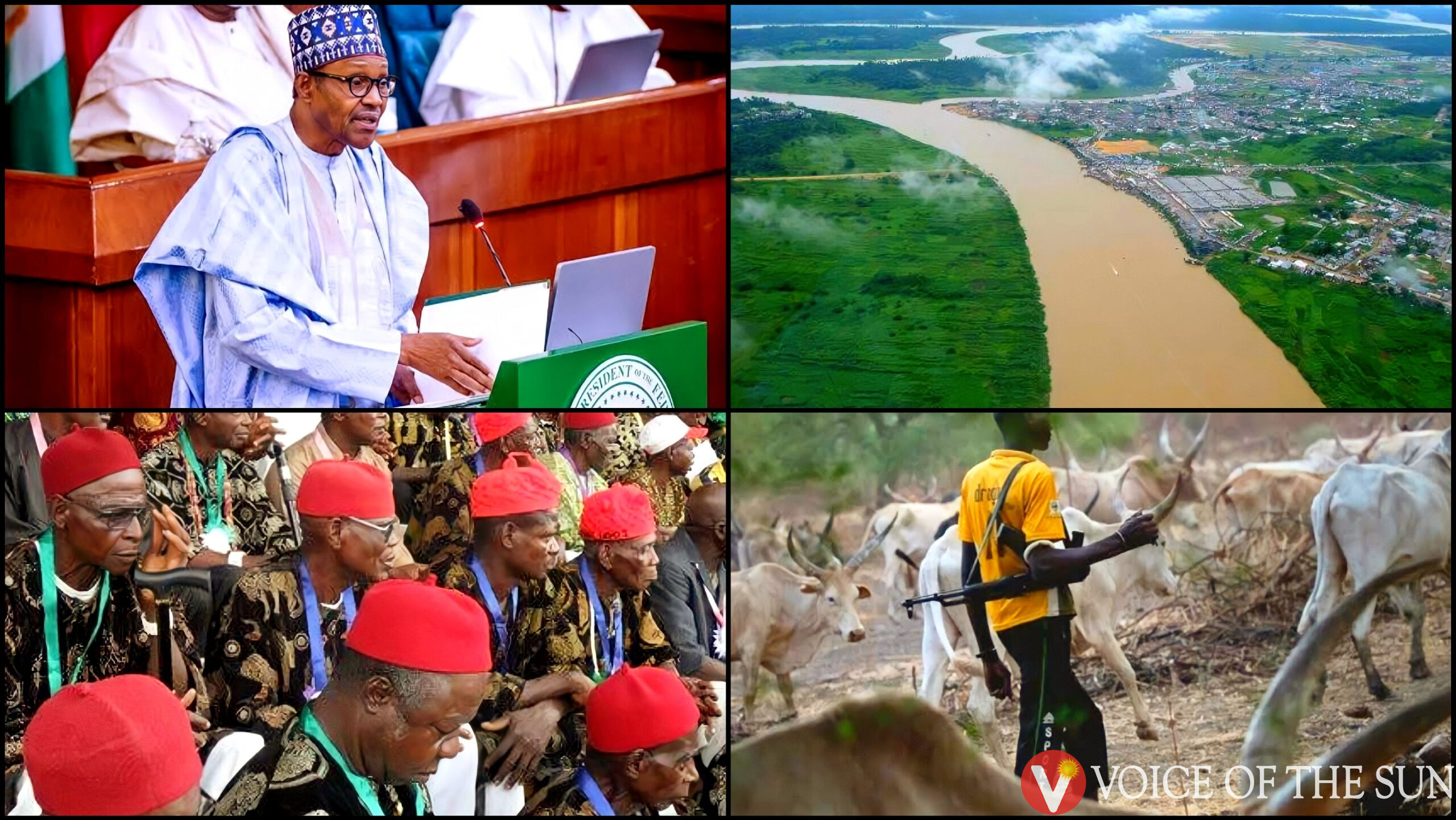
The Water Resources Bill which has raised a lot of controversy in Nigeria, in the last few years, poses a great existential threat to Ndi Igbo. It is a bill that seeks to dispossess Ndi Igbo, as well as all Nigerians, of their ancient rights and free access to the waterways and underground water beneath their feet, and hand it over to the Fulani herdsmen, as part of their grazing routes.
The Bill was given an attractive and assuming title. It read: ‘A Bill for An Act to Establish a Regulatory Framework for the Water Resources Sector in Nigeria, Provide for the Equitable and Sustainable Redevelopment, Management, Use and Conservation of Nigeria’s Surface Water and Groundwater Resources and For Related Matter.’
This means that River Niger, for instance, would no longer be long to the peoples of Onicha (Onitsha) and Ahaba (Asaba) ably controlled by their state governments, but that of the Federal Government, controlled from Abuja – definitely against the interest of Ndi Igbo.
It means that an Igbo man/woman must apply for and obtain a license from the Federal Government, before using water in his community or town for domestic or commercial purposes.
This means that Ndi Igbo who live along waterways (rivers, lakes, and other tributaries of the Atlantic Ocean) will need licenses to fish from the water. Whoever controls Aso Rock, will control their rights to livelihood.
This means that the ceremonies, traditions, and spirituality of our people, which are centered around these water bodies can automatically become a crime, as long as you don’t get clearance from the minister’s office in Abuja.
In simple terms, Buhari, the president of Nigeria, and other Fulani Northerners are bent on getting the Water resources bill to be passed into law. And their desperation shows that there is something enormous at stake for the Fulani in the Bill – something which will drastically affect the indigenous peoples who have owned and lived by these waterways for thousands of years.
Umu Igbo, it is URGENT to note that the Bill has scaled through the first reading, on the 29th of June 2022, in the House of Representatives. This mind-troubling bill was slated to be deliberated upon on the 18th of January 2023, when the National Assembly held its first plenary for 2023. And from all the reports we are getting, it might scale through the second reading. Mana Chukwu Aju.
The Origin And Brief History Of The Water Resources Bill
The controversial and ambitious Water Resources Bill was first introduced by President Muhamadu Buhari in 2018, as an Executive Bill, in his first tenure in office. He sent the suspicious bill to the National Assembly, which was at the time under the leadership of senators Saraki and Dogara. The bill received great opposition from many corners of the country, and it was finally rejected.
Again, on July 23, 2020, shortly after Muhamadu Buhari was sworn in as the president for his second tenure, the Bill was re-introduced by Abubakar Fulata, the Chairman, of House Committee on Rules and Business – a lawmaker of the APC, from Jigawa State. His motion was rejected by a majority of the lawmakers and was thrown out.
This bill, after being thrown out twice, would find its way back to the floors of the National Assembly on June 29, 2022, sponsored by Hon. Sada Soli, a Katsina-born politician, and APC lawmaker is the Chairman of the Committee on Water Resources. This time, the title of the bill had been modified due to the strong opposition it has gathered previously. It read: ‘A Bill for an Act to Establish a Regulatory Framework for Trans Boundary Water Resources in Nigeria, Provide for the Equitable and Sustainable Development, Management, Use and Conservation of Nigeria’s Inter-State Surface Water and Groundwater Resources; and For Related Matters, 2022’.
This Bill, as of the time of writing this article (22-1-2023) is still being pushed for in the National Assembly. The sponsors of the Bill (all Fulani) are trying to smuggle it into law, before this administration leaves in May 2023.
Portions Of The Water Resources Bill With Hidden Dangers For Ndi Igbo
There are portions of the said Water Resources Bill that we need to draw the attention of our people. These portions hold some of the clauses that have given many well-meaning people, organizations, and leaders around the country deep concerns. Let’s take a look.
The Bill’s objective is to ensure that the nation’s inter-state water resources are protected, used, developed, conserved, managed, and controlled in ways that take into account amongst other factors:
(a) citizens’ right of access to safe water and basic sanitation; (b) meeting the basic human needs of present and future generations; (c) promoting equitable and affordable access to water and reducing poverty; (d) adopting hydrological boundaries as the basic units for water resources management; (e) protecting the water environment for sustainability of the resources and protection of aquatic ecosystems, and recognizing the polluter pays principle.
Clause 2 (1) of both bills provides the right to the use, management, and control of all surface water and ground-water affecting more than one State under item 64 of the Exclusive Legislative List in Part 1 of the Second Schedule to the Constitution of the Federal Republic of Nigeria, 1999 as amended, and as set out in the First Schedule to this bill is vested in the Government of the Federation.
(2) States may make provisions for the use, management, and control of water resources occurring solely within the boundaries of the State in line with regulations and guidelines made pursuant to this bill on policy and principles of Integrated Water Resources management.”
The bills are also the on the entitlement to use of water contained in clause 3(1) which states that subject to the provisions of S. 2 (1), a person may, without a license:
“(a) take water from a water source to which the public has free access for the use of his household or for watering domestic livestock; (b) use water for the purposes of subsistence fishing or for navigation to the extent that such use is not inconsistent with this bill or any other existing law;
“(c) where a statutory or customary right of occupancy to any land exists, take or use water without charge from the underground water source, or if abutting the bank of any watercourse, from that watercourse, for reasonable household use, watering livestock and for personal irrigation not for commercial purposes; or (d) store and use runoff water from a roof.
“(2) a person may continue with an existing lawful water use, including a customary use, in accordance with Part V of this bill. (3) a person may use water in terms of a general authorization as defined in section 72 or pursuant to a license issued under this bill.
“(4) Any entitlement granted to a person by or under this bill supersedes any right to use water which that person might otherwise have been able to enjoy or enforce under any other law to: (a) take or use water; (b) obstruct or divert a flow of water; (c) affect the quality of any water; (d) receive any particular flow of water; (e) receive a flow of water of any particular quality; or (f) construct, operate or maintain any waterworks.”
As the Bill went forward, it read:
clause 10 (1) stipulates that it shall be the duty of the minister to promote the protection, use, development, conservation, and management of inter-state water resources throughout Nigeria and to ensure the effective exercise of powers and performance of duties by institutions and persons identified under this bill and in the constitution.
“(2) the minister shall have the power to make regulations, policies, and strategies for the proper carrying out of the provisions of this bill and functioning of the Ministry in accordance with this Bill as well as in accordance with other directives he may receive from the President and any guidance from the Council.
“(3) the minister shall have and exercise reasonable powers as are necessary and required in furtherance of the duties and functions conferred pursuant to this bill, the directives of the President, or any other law.”
The Right Action For Ndi Igbo Take About The Water Resources Bill
The continuous attempts by elements of the Fulani extraction, who have dominated President Muhamadu Buhari’s government, to pass the water resources bill through the back door, should give every well-meaning Igbo person great concern. This is because if this bill is passed into law, we can as well say that we have no lands that are called Ana Igbo – for our waters (underground and surface) are an extension of the lands our ancestors left for us. If a Fulani man (in Abuja) controls our right to use our waters freely, then automatically we have become “landless slaves.”
We call on our people in Nigeria and all over the world to join their voices in this fight. If we do not stand up and fight this, our rights to our waters and also lands will be taken away by a Fulani man in power, just like many Igbo territories were demarcated and added to the newly formed South-South in 1976, by the Justice Nasir Boundary Adjustment Commission.
Umu Igbo history is about to repeat itself on a catastrophic scale and we must be bold in resisting the land grabbers who care nothing about our heritage and future.
Our people have been marginalized in Nigeria for decades, and this has led to the current Biafran agitation. While we are neck-deep in seeking dialogue and listening to the plights of our people, we are now more than ever, confronted with the tsunami of all marginalization. This Water Resources Bill and the power it will give to the Fulani (and all who stand to benefit from legally owning our lands and waterways), is a hard target at the very beating heart of our existence as a people. It is clear evidence that our people’s agitation for a country of their own, is legitimate. It is clear evidence that what the detractor intends is to subdue the Igbo and make him a SLAVE in his ancestral land.
Umu Igbo, kunie nu. For we must resist this Water Resources Bill with all we have.
We at Voice Of The Sun, want to make abundantly clear that the Water Resources Bill Is illegal, unlawful, and unconstitutional. Those who are sponsoring this obnoxious bill must know that Ndi Igbo are by virtue of ancestral rights and the laws of Nigeria, owners of their land, rivers, lakes, ponds, lakes, meanders and established levees, freshwater swamps, inland waterways, surface and ground waters within our various states.
Let it be clear that the only ones who have been given the right by the people “hold these ancestral lands and waterways in trust” are our governors in Igbo land. No minister from the Federal government has such rights or trust from our people. In a Federation such as Nigeria, it is only the states (federal units) that have the right to establish and implement water laws and policies suited to their people’s water needs and concerns.
Many legal practitioners have said that the National Assembly does not have the powers under the constitution of Nigeria to legislate on the bill, let alone pass it into law. This is because the objectives of the bill are not contained in the exclusive and concurrent legislative list of the Nigerian constitution – meaning that the residual power lies with the state governments alone to make such laws. Only the state house of assemblies has the right to legislate and pass a law on things like fishing in rivers, lakes, waterways, ponds, and other inland waterways in Igbo land.
This Article Was Written By Chuka Nduneseokwu, Editor-In-Chief, Voice Of The Sun
Please Support and DONATE To Us. Help Us In Preserving Our History, Culture and Beliefs as Ndi Igbo. CLICK HERE to assist us financially.
-
![How Igbo People Started Becoming Christians 181 Years Ago (1841–2022): A Brief History Of Christianity In Ìgbòland [Part I] How Igbo People Started Becoming Christians 181 Years Ago (1841–2022): A Brief History Of Christianity In Ìgbòland/Among The Ìgbò [Part I]](https://voiceofthesun.com/wp-content/uploads/2022/07/How-Igbo-People-Started-Becoming-Christians-181-Years-Ago-1841–2022-A-Brief-History-Of-Christianity-In-Igboland-Among-The-Igbo-Part-I-1-400x240.jpg)
![How Igbo People Started Becoming Christians 181 Years Ago (1841–2022): A Brief History Of Christianity In Ìgbòland [Part I] How Igbo People Started Becoming Christians 181 Years Ago (1841–2022): A Brief History Of Christianity In Ìgbòland/Among The Ìgbò [Part I]](https://voiceofthesun.com/wp-content/uploads/2022/07/How-Igbo-People-Started-Becoming-Christians-181-Years-Ago-1841–2022-A-Brief-History-Of-Christianity-In-Igboland-Among-The-Igbo-Part-I-1-80x80.jpg) Igbo History and Origins3 years ago
Igbo History and Origins3 years agoHow Igbo People Started Becoming Christians 181 Years Ago (1841–2022): A Brief History Of Christianity In Ìgbòland [Part I]
-
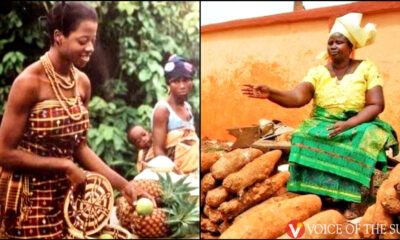
 Igbo Cultures And Traditions3 years ago
Igbo Cultures And Traditions3 years agoThe Four Igbo Market Days and Their Significance In Odinala na Omenala ÌGBÒ
-
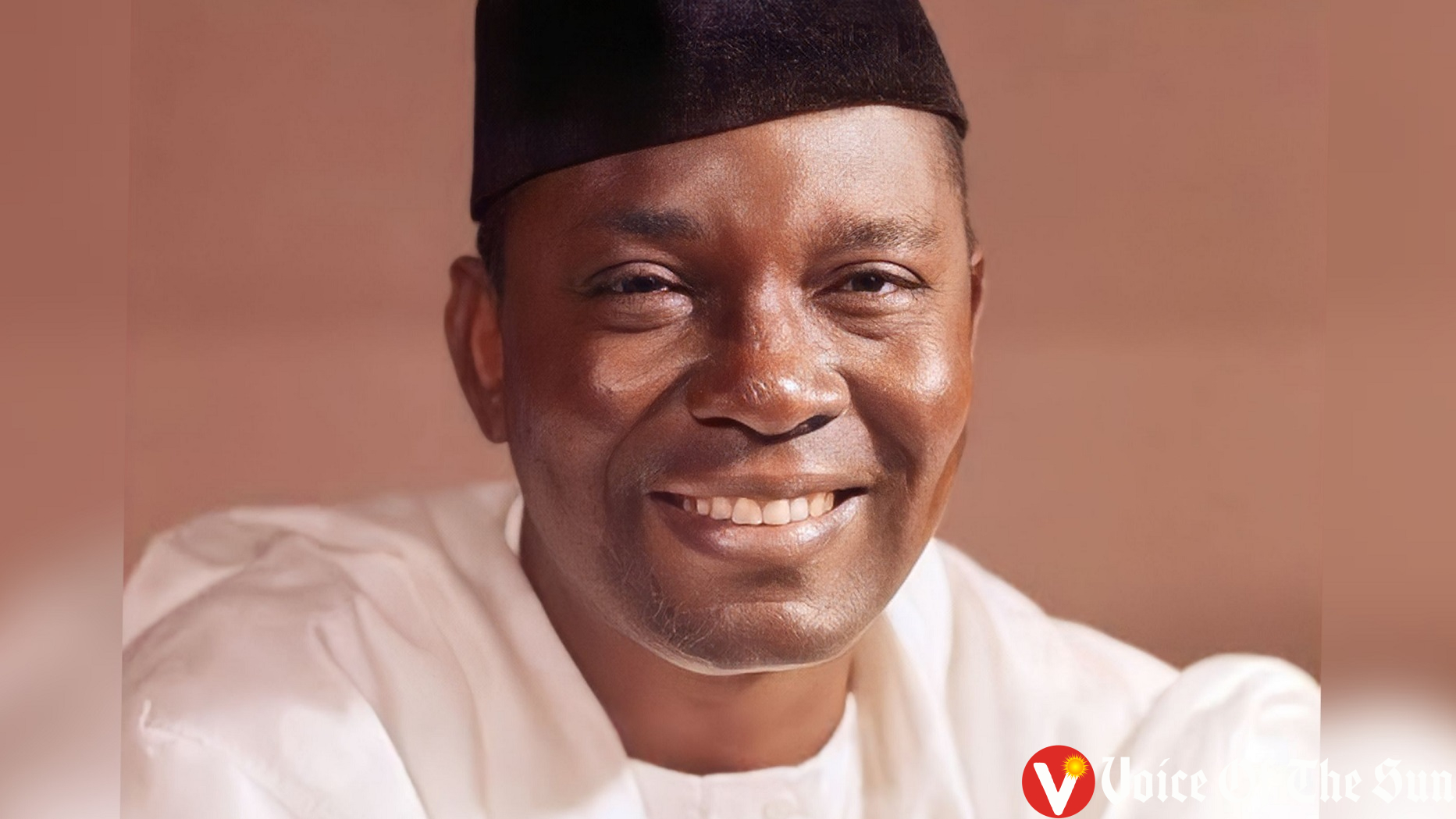
 Igbo History and Origins2 years ago
Igbo History and Origins2 years agoNnamdi Azikiwe: Legacy of a Nigerian Nationalist And Igbo Icon
-
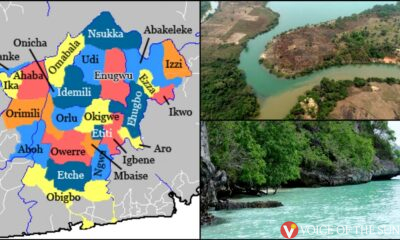
 Igbo News3 years ago
Igbo News3 years agoIgbo Land Is Not Landlocked – We Have The Deepest And Shortest Access To The Atlantic Ocean
-
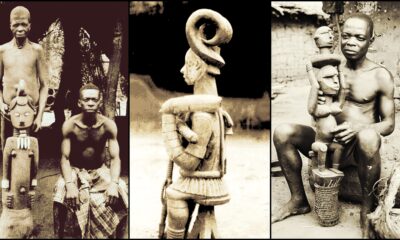
 Igbo Spirituality2 years ago
Igbo Spirituality2 years agoÌgbò Ancestors Did Not Worship Idols and Demons – A Journey Into Ịgọ Mmụọ In Odinana Ìgbò
-
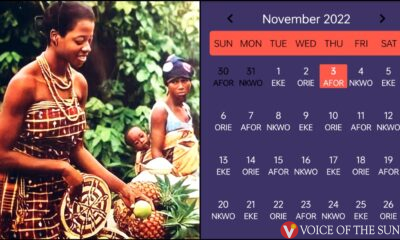
 Igbo Cultures And Traditions2 years ago
Igbo Cultures And Traditions2 years agoWhich Igbo Market Day Is Today – Get The Complete Igbo Calendar
-

 Igbo Spirituality2 years ago
Igbo Spirituality2 years agoUnderstanding Ndị Ịchie In Igbo Cosmology: Who Are Ndi Ichie In Odinana na Omenana Ìgbò?
-

 Igbo History and Origins2 years ago
Igbo History and Origins2 years agoChukwuemeka Odumegwu Ojukwu: The Life And Legacy Of An Igbo Hero
